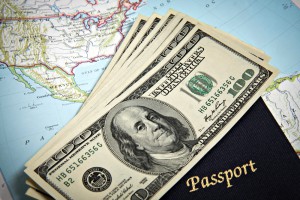
Summer is almost here — which means it’s officially vacation season. You may be looking forward to “getting away from it all,” but, as you know, vacations actually require a fair amount of planning. And it might surprise you to learn that some of the efforts required for successful vaca- tions can impart some valuable lessons in other areas of your life — such as investing.
Here are some vacation-related moves that you may want to transfer to the investment and financial arenas:
• Secure your home. If you’re going on vacation for a week or so, you may need to take some steps to safeguard your home: stopping your mail and newspaper, putting on a timer to turn on lights, alerting your neighbors that you’ll be out of town, and so on. But while it’s important to secure your home today, you will also want to help ensure it will be there for your family in the future, should anything happen to you. That’s why you’ll want to maintain adequate life and disability insurance.
• Know your route. If you are driving to your vacation destination, you will want to plan your route beforehand so that you can avoid time-consuming delays and detours. And to reach your financial goals, such as a comfortable retirement, you will also want to chart your course — by creating an investment strategy that is designed to help you work toward those goals, based on your specific risk tolerance, investment preferences and time horizon.
• Keep enough gas in the tank. As you set out on a road trip, you need a full tank of gas in your car, and you’ll have to keep refueling along the way. To “go the distance” in pursuing your financial goals, you will need to have sufficient “fuel” in the form of investments with growth potential. If you don’t own a reasonable
amount of growth-oriented vehicles, you could lose ground to inflation and potentially fall short of your objectives — so, over time, you may need to “refuel” by reviewing and rebalancing your portfolio to ensure it has enough “power.”
• Protect yourself from getting burned. If your vacation plans include a stay at the beach, you’ll need to pro- tect yourself and your family from the hot sun — so make sure you’re all using sunscreen. When you invest, you can also get “burned” if you are not careful — especially if you are inclined to chase after “hot” investments. By the time you hear about these so-called sizzlers, they may already be cooling off, and, even more importantly, they just might not be appropriate for your goals and risk tolerance. Instead of becoming a “heat- seeking” investor, focus your efforts on building a diversified array of quality investments appropriate for your needs. If you only own one type of financial asset, and a downturn hits that asset class, your portfolio could take a big hit. But by diversifying your holdings, you can help reduce the effects of volatility. Keep in mind, though, that diversification by itself can’t guarantee profits or protect against loss.
As we’ve seen, some of the same principles that apply to creating a vacation may also be applicable to your investing habits. So put these principles to work to enjoy a pleasant vacation — and a potentially rewarding invest- ment experience.
This article was written by Edward Jones for use by your local Edward Jones Financial Advisor.



